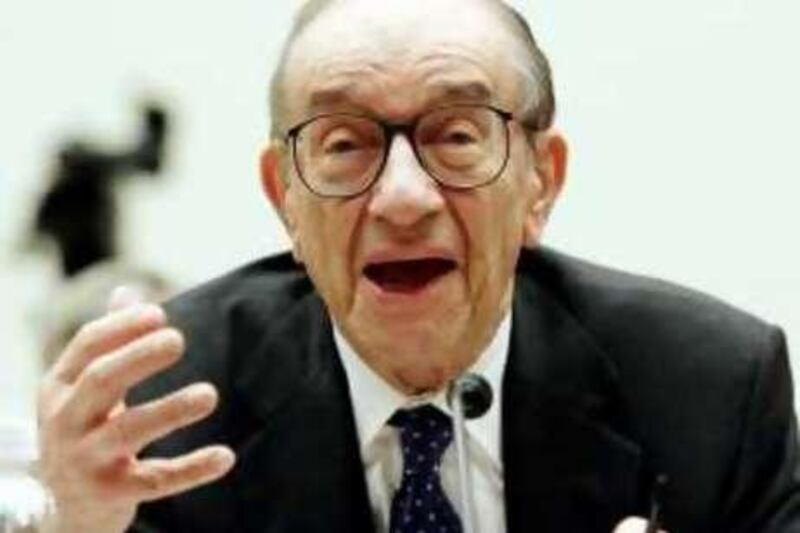Economics, or at least the neo-liberal part of it, is in acute turmoil following the credit and financial crises, but some believe it will rise again, phoenix-like, after learning its most recent lessons. Neo-liberal economics seemed to make a lot of sense as a union of free markets, free trade and decentralised decision making. Free markets offered the minimum of regulation, enough to shield us from the extremes of "jungle capitalism", but not constrain the animal spirits of the economy. Free trade was supposed to lift global growth rates, and it did, while decentralised private sector decision-making ensured that the invisible hand would correct price and demand discrepancies incrementally, so avoiding imbalance and shocks. Utopia would be here that much quicker.
The reality was less smooth. Economic policy naturally goes in cycles. Market ideology ebbs and flows in relation to the conditions and needs of the real world. Right now, the old paradigm is very much in tatters. Monetary policy flexibility was enough to accommodate productive investments in capacity and cushion the occasional slowdown, and fiscal policy was a well-tailored Keynesian counterweight, with actual fiscal surpluses in years of high growth.
Some eminent but pessimistic economists such as Thorstein Veblen predicted the current disaster. Veblen is best remembered as the Victorian-era cynic who wrote the "Theory of the Leisure Class", centred around the notion of "conspicuous consumption". He believed that when profits and growth are high for an extended period of time, the pursuit of short-term profit inevitably becomes emphasised by most economic participants. When this happens, it is to the detriment of "industry", by which he meant productive enterprise, as distinct from "business", the attendant commercial effort of marketing, sales and financial market play.
Veblen died in 1929 believing that the world economy was on the brink of a crisis that would be brought on by a collapse of the excessive speculation taking place at the expense of sensible investment in productive capacity growth. How times seem not to change much, when we analyse the same forces affecting the market crashes this year. Seeing the former US Federal Reserve chairman Alan Greenspan in front of Congress several years ago trying to explain how home buyers, lenders, appraisers, mortgage brokers, securitisers, rating agencies and investors were all "irrationally exuberant" was an almost poignant requiem for those earlier days before the Great Depression.
Mr Greenspan, that most rational of human beings, was at a loss to say how rational analysis that works in the classroom fails in the real world. There were too many people chasing fast money, and it exceeded his comprehension that economic reason could not stop them from pursuing what worked for them, at least in the short term. And that's not to exempt Mr Greenspan from criticism. It was after all his own monetary policy, stimulating the economy via mortgage finance, that kicked off the final frenzy, facilitated by the emphatic belief in the rational behaviour of deregulated financial market firms. As with the dotcom crisis before, he had a blind spot when it came to recognising how inevitable it is that fundamental analysis is thrown out the window when there is an upwards multi-year trend staring you in the face.
But this economic crisis has already changed things, and if it continues it will change a lot more. Already the US Congress is preparing to introduce a second economic stimulus package, one that will reflect the values of the Democratic majority. And it's not likely to stop there, if we are in a period of protracted economic slowdown. The creation of demand by government spending is a tried and true part of the economic tool kit, and there are some things to look forward to in the upcoming Barack Obama administration if such demand stimulus proves necessary. Far beyond the simple cushioning of the shock for middle-class and low-income victims of the slowdown, the odds of major government investment in the economy is quite likely.
Among the sectors likely to see such investment are public infrastructure - projects such as roads and bridges that Japanese policymakers spent so much on during their long slowdown in the 1990s. Public transport is another sector where a whole lot of money can be put to work improving and creating a more modern network to supplement the overburdened airports that are already at capacity. Energy is another. The long-standing argument about the need for a "Manhattan Project" for alternative energy is gaining momentum, and a coalition of interests from environmentalists to foreign policy hawks would be very supportive.
After all, if the 1930s saw the Tennessee Valley Authority creating the hydropower industry basically from scratch - an impossible feat for the private sector to tackle - why can't Mr Obama's administration push for a "green" version of the same. So, while neo-liberalism is dead, or at least on extended sick leave, the timing may be just right for some good old-fashioned liberalism and state intervention to take its place, at least until the cycle changes and the neo-liberal ghost rises again. For the Gulf, this cyclical change to state intervention will be nothing new, given that a completely neo-liberal, free market system never sat well with the natural instincts of governments in the Gulf, where paternal capitalism and intervention are taken for granted. Maybe Mr Obama can learn a few things from how things are managed over here. Dr Mohamed A Ramady, a former banker, is a visiting associate professor in the finance and economics department at King Fahd University of Petroleum and Minerals in Dhahran, Saudi Arabia





